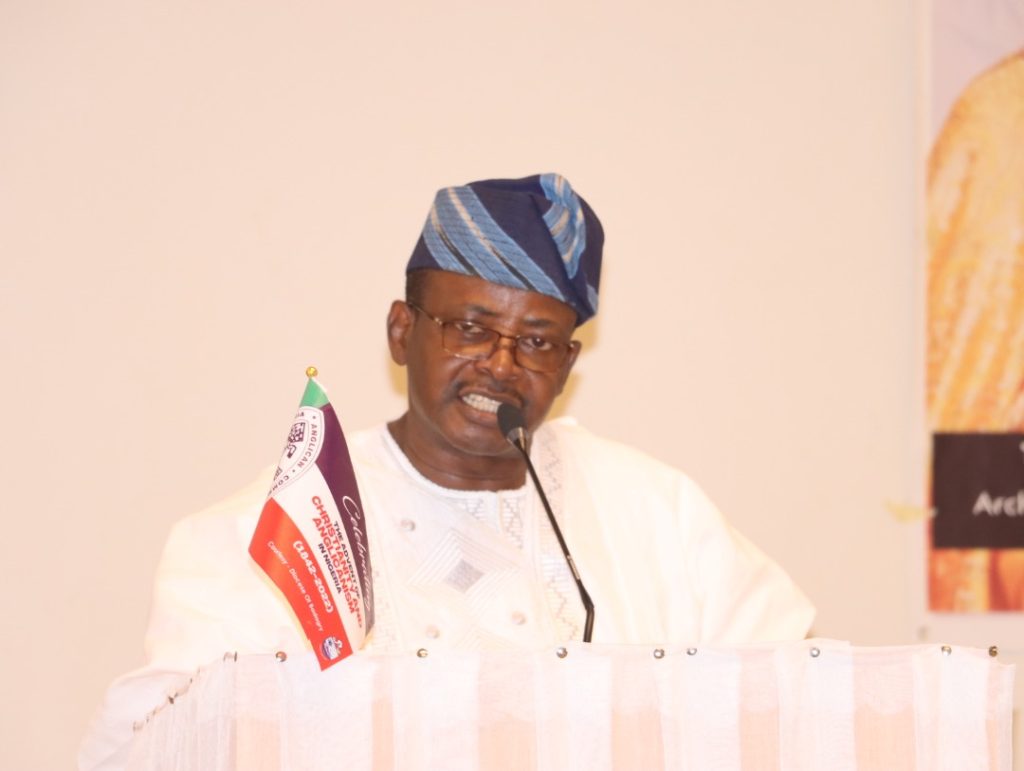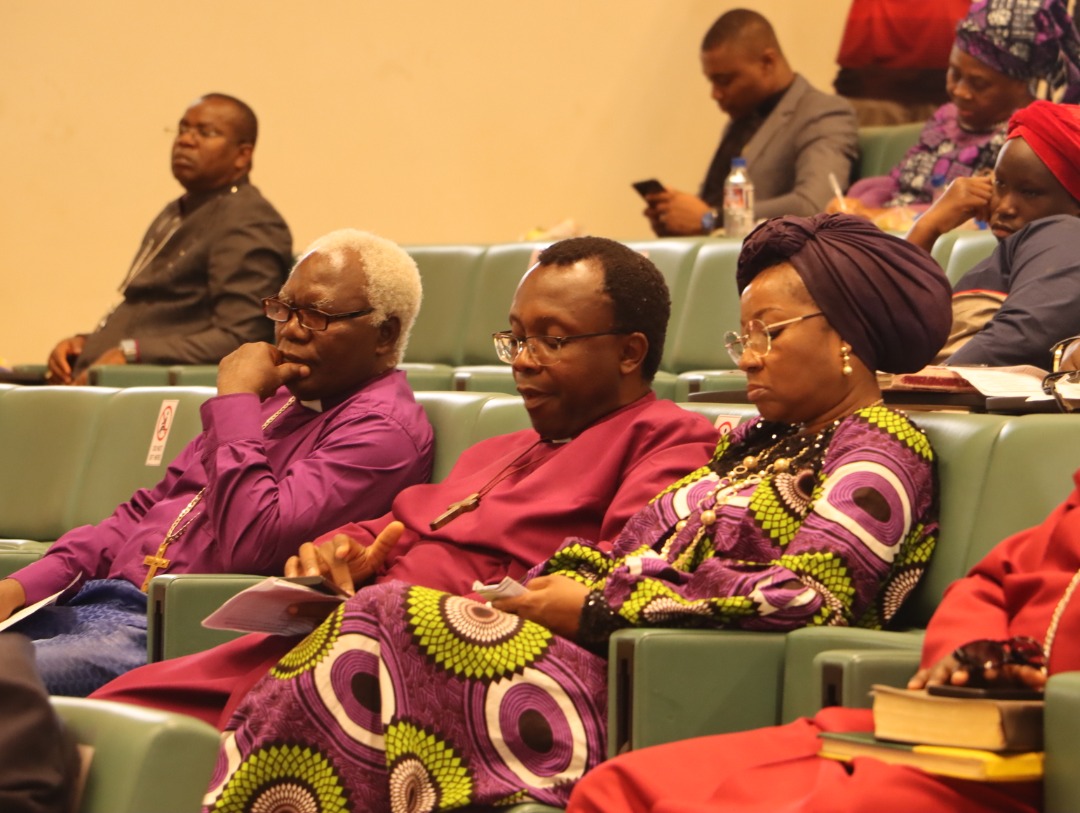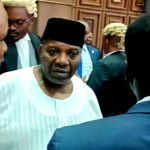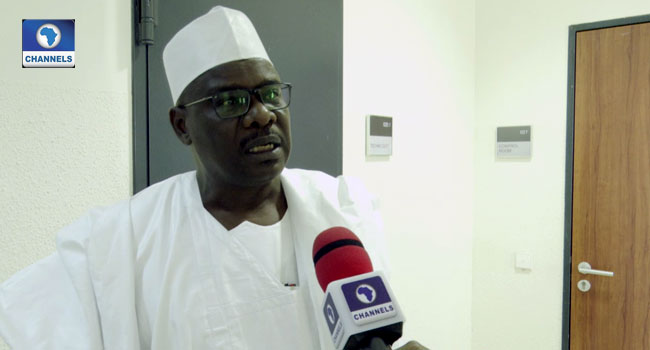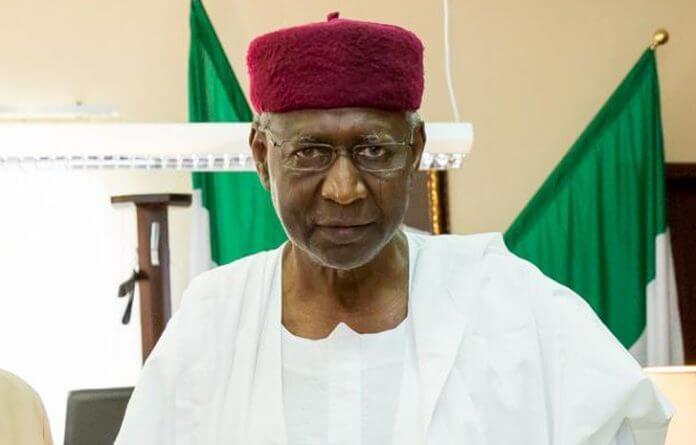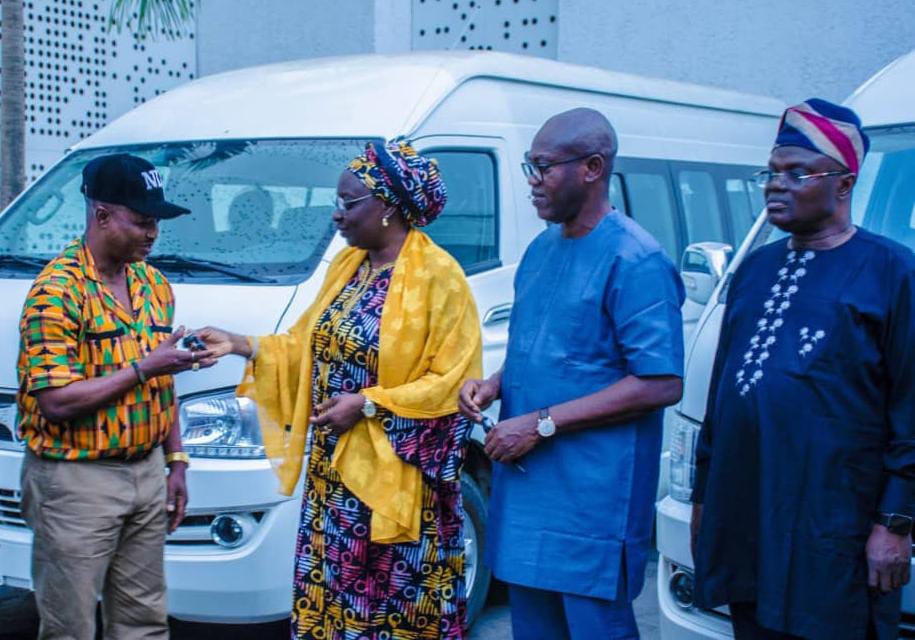TOPIC: CHRISTIANITY AS A CATALYST OF POLITICAL AND SOCIO-ECONOMIC DEVELOPMENT IN NIGERIA: 180 YEARS OF THE CHURCH OF NIGERIA (ANGLICAN COMMUNION)
Paper Presented at the Church of Nigeria (Anglican Communion) 180 Anniversary of Christianity and Anglican Church in Nigeria on December 17, 2022, at ASCON Badagry
Preamble:
I thank God Almighty for this momentous occasion and for Life. All praise and adoration to His name. His name be exalted forever. Amen. I wish to sincerely thank the Primate of All Nigeria, the Most Rev’d Dr Henry C. Ndukuba, for inviting me to be part of the 180th anniversary of Christianity and of the Anglican Church in Nigeria, and to give this anniversary lecture. I also wish to thank very profoundly, the Lord Bishop of Badagry, The Rt. Rev’d Babatunde Joseph Adeyemi for providing the platform for this important occasion. May I also be allowed to thank Professor Rotimi Omotoye of the University of Ilorin, my friend, classmate, and colleague who suggested my name to the church as one of those to deliver this lecture. God bless you. At this juncture, I welcome My Lord Bishops from different parts of the country and of the world for allowing me to be in your midst. May God continue prosper the works of your hands in His Vineyard. Amen. It is a great honour to be here.
Distinguished Ladies and Gentlemen. I wish to thank you all for being here today and for providing me the opportunity to broaden our perspectives on what humanity and society have benefitted over the longue duree from the existence of this Church. Whether our compatriots knew it more not, we have all been affected or influenced, directly or indirectly, by the progress of the Anglican Church in Nigeria.
Introduction
Let me start with a truism that is at the same time designed to serve as the framework for this presentation. It is taken from the book of Jeremiah: “Without God, the source of light, we are not able to properly direct our steps” (Jeremiah, 10:23). In this short presentation, I would like for us to consider this and the following questions, First, what would our existence be without God? The second question flows from the first. What would Nigeria have been without the Anglican Church? In 2042, it will be two hundred years when the Anglican church was birthed in this land. It was the manifestation of the Great Commission, the final instruction given by Jesus to His Disciples to go and make disciples of all nations (Matt. 28:12). In 1842, when Henry Townsend of the CMS left Freetown, Sierra Leone and landed in Badagry before proceeding to Abeokuta, a momentous event occurred. In Badagry, he and the first Methodist missionary to Nigeria, the Rev Thomas Birch Freeman jointly celebrated the Eucharist together under a tree on Christmas day in 1842. This has been the marker for the establishment of the Anglican Church in Nigeria ever since. That was the first mission of the Church of England in Nigeria. Thus, 180 years is a good occasion to discuss the broader implications of the planting of Christianity in this land and then use that auspicious occasion to focus new attention on the past, present and the future. This would also allow us to offer different perspectives on the impact of the church on the nation and its people.
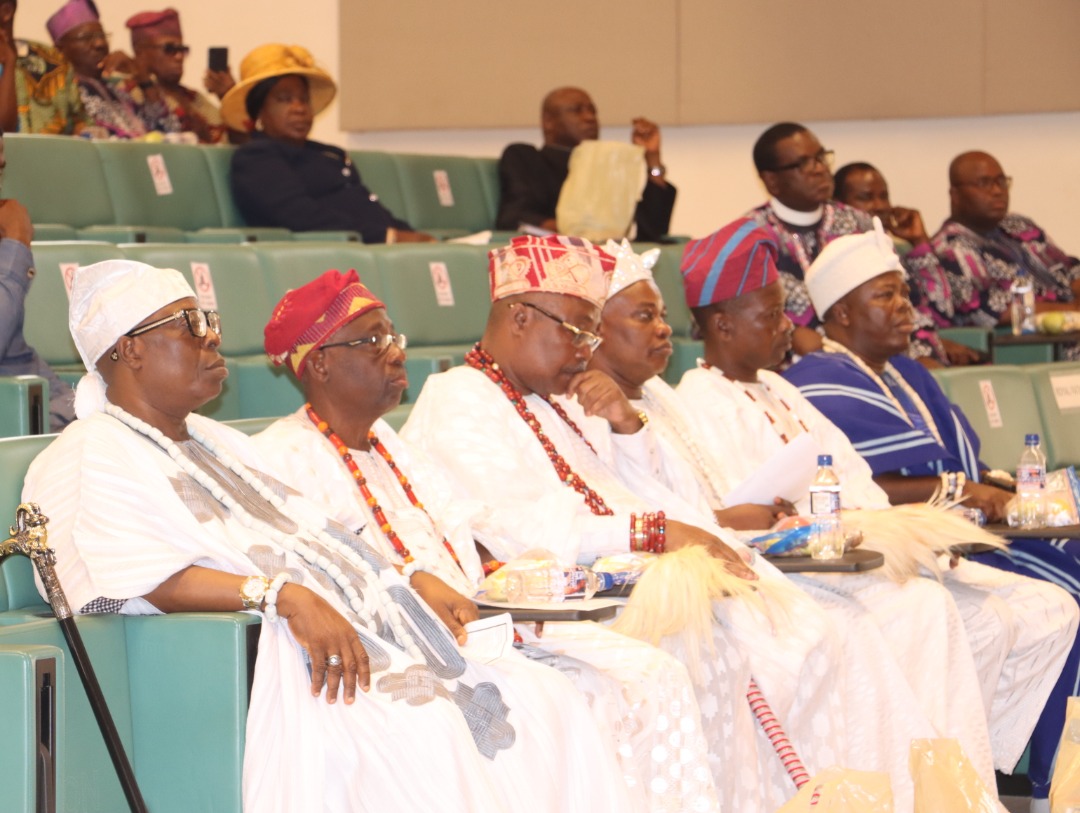
Testing the Waters
Historically, and in reality, the Anglican Church Missionary Society (CMS) became by far the most impressive and successful of the Christian missions in what became modern Nigeria. Anglicanism, the Protestant Chrisitan tradition had emerged during the Protestant Reformation of the 16th century with the Archbishop of Canterbury regarded as the unofficial spiritual leader of the international Anglican community. However, prior to its making Badagry the lucky home of Christianity in Nigeria, the Anglican Church Mission Society had been part of the Official British Expedition of 1841, the Niger Expedition, which had tried to bring çivilisation to the interior of the continent. That mission had transported 230 Africans and Europeans to the delta of the Niger river and had two important Church Missionary Society (CMS) personnel, Samuel Ajayi Crowther- who become Nigeria’s first Anglican bishop – and Rev J. F. Schon.
A Witness to History
The Anglican Communion occupies a position of supreme importance in the life of Nigeria and its people. The quest to fulfil the Great Commission, made the Church Missionary Society of England part of our history. Only very few people realised that the history of the Anglican Church will conveniently provide a better understanding of the political, social, linguistic, sociological , economic , architectural, and even dynastic transitions and developments in this country. The church has been the most pivotal institution in Nigeria’s existence since the 19th century. Either through its precursor, the CMS Mission, or its successor The Church of Nigeria (Anglican Communion), the church has played a pivotal role in defining the pace, pattern and trajectories of the Nigerian peoples and state. In fact, it will not be out of place to describe the church as the creator of the Nigerian state, its structures, and institutions. It was the gateway to the modern society that was clearly emerging from the ashes and ruins of the trans-Atlantic Slave trade (TAST) and the wrong-headed ethos of the traditional warrior aristocracy. Once the missionaries had planted the Anglican Church in Nigeria, it began to play an exceedingly important role in defining the country’s existence. The church incubated people who achieved fame as missionaries, government officials, professional men, and women, or those who acquired considerable wealth through industry, commerce, and businesses. These also comprised, among others, teachers, lawyers, doctors, nurses, and technicians.
The Establishment of Mission Stations and the Ideology of Self Sustenance
With the missionaries domiciled in Badagry became a place of incredible hope for mankind in this part of the world. Beyond the move to Christianise the place there was the move to stop idolatry and discontinue the obnoxious practices of human sacrifices and the trade in slaves. From Badagry, the CMS began to address centuries of human bestiality, underdevelopment, and dispossession. The move against slavery and slave trade was monumental. The economic foothold offered a new lease of life in various forms. Both the coastal areas and the interior of the country became the sites of Christian evangelism and other life-altering ventures,
The introduction of Christiany into Nigeria came along with education, modern commerce, and agriculture. It was obvious that the church not only encouraged us in spiritual matters alone but also in extremely meaningful endeavours. The Rev Henry Townsend also laid the foundation of the first story building in Nigeria in 1842 and was completed in 1845. The building became the cradle of western education in Nigeria. As early as 1844, Christian missionary activities had taken off in Abeokuta. The first church in Nigeria was completed here in 1898. This was what became the Cathedral Church of St. Peter, Ake, Abeokuta, There, they began to facilitate trade and production processes, and began to work in tandem with the British in Lagos to roll back the influences of Kosoko, the ruler of Lagos and an inveterate slave trader who was regarded as an obstacle to the progression of modernity and civilisation.
The church began to encourage the growth of legitimate commerce and in the process helped in condemning slavery and in advancing the course of agriculture in the country. The fight against the obnoxious slave trade and other matters led to the bombardment of Lagos in 1851 and its subsequent annexation by British imperialism in 1861. The Doctrine of the Bible and the Plough as a tool of evangelisation was enunciated by Thomas Fowell Buxton who believed that the doctrine would serve civilization and Christianity exceedingly well. The ideas of the Church were eventually adopted by the British colonial government and became the basis for the development and transformation of Nigeria.
The General Advancement of Civilization
The arrival of missionaries in Badagry helped to check those things that constituted the general obstacles to civilization and human progress. The activities of Kosoko , a notorious slave trader and the then king of Lagos proved inimical to the end of slavery and the slave trade. The church ensured that the British cut him down to size and paved the way for neutralising those things that would prove inimical to progress. In addition, the Church began to preach vocation and the successful performance in one’s calling as evidence of divine grace and support. What the CMS did for economic change and development has receded into the corners of our memories. But this should not be allowed to atrophy. Converts of the Anglican church played pivotal roles in Nigeria’s economic development. Although Sara Berry, the American Scholar of contemporary African political economy has done so much on this, it is only the specialist who read her works. We must populate the popular literature with the activities of the Anglican Church in the past i.e through children’s literature and colourful books. Let us quickly revisit one of the now unknown facts.
The CMS and the Rise of the Cocoa Economy
Prior to the advent of oil as the main revenue earner for this, country, agriculture place that role. And within agriculture, cocoa played the role of the major revenue earner. How was the Anglican church involved in this? Students of history have continued to be taught how the Anglican church provided the background for the agricultural revolution that defined Nigeria in the 19th and 20th centuries. Christian missionaries came to Western Nigeria in the 1840s, fifty years before cocoa was introduced around 1890. J. B. Webster has detailed the activities of one of the most successful of the Agege planter, J.K. Coker. But few people knew that Cocoa was first brought to Ondo in the early 1890s by Rev Charles Philips , a Yoruba clergyman who later became an Anglican bishop. Through that, he improved the material as well as the spiritual lot of the Ondos, especially through new agricultural products. Rev Philips grew rice on his own land in the 1880s to save the expense of importing it from Lagos or Abeokuta. In January 1895, he urged Christians in Ondo to take up farm work and palm oil production. In 1896, he planted coffee. Although it took some time for people to accept this paradigm shift, but they did later on. Many farmers successfully replicated the examples of Rev Philips to the glory of God. were replicated by Christians in Ondo town.
Societal Growth and Development
In 1864, Samuel Ajayi Crowther became the first African bishop of the Anglican Church. On the banks of the Niger, he and John Christopher Taylor kept journals that detailed the Gospels carried out on the banks of the Niger. He not only contributed to Yoruba orthography but also translated the Bible into Yoruba language. By the later part of the nineteenth century, it was already obvious that there was discrimination against Africans by European clergies. In 1890 the highly respected Bishop Samuel Ajayi Crowther was forced to resign from his post as the Bishop of the Niger Diocese.
The entire ramifications of Yoruba history and culture would be incomplete without reference to an Anglican Minister and historian Samuel Johnson (1846-1901) whose significant study and publication, The History of the Yorubas: From the Earliest Times to the Beginning of the British Protectorate has remained magisterial in the study of Yoruba history. Samuel Johnson, born in Feeetown and educated by the Church Missionary Society has contributed significantly not only to Yoruba history and historiography but is counted a sort of the pioneer of African historiography.
The Anglican Church and War and Peace in Yorubaland
The Kiriji (Ekitiparapo) war was a long drawn out war has remained a dark blot in Yorub history and consciousness. The war lasted from 1877-1893. It involved Ibadan, Ekiti, Ijesaland, Ijebu, and Egba. The Ekitiparapo alliance received the support of the antagonists of Ibadan with Modakeke coming to the aid of Ibadan. However, by a treaty of 1886 initiated by Anglican missionaries and supported by the British, Ibadan recognised the independence of the Ekitiparapo alliance.
In a similar fashion, the Egba had signed a treaty in 1893 with Governor Carter of Lagos where the British recognised Egba’s independence under the Egba United Government which was dominated by the CMS Mission.
The Realm of the Mind
The CMS Grammar school became pivotal to the development of the country. The Anglican Church, from its creation of the Church Missionary Training Institute, mission schools and other training grounds went ton to establish the greatest secondary schools in this country. The church established a chain of mission schools in Nigeria. The CM Grammar School in Bariga, Lagos is the country’s oldest secondary school in Nigeria having been founded on 6 June 1859 by the Church Missionary Society. A good number of men and women became the beneficiaries of education David and Anna Hinderer became missionaries in Ibadan, a land under the firm grip of the traditional military aristocracy in the nineteenth century. The couple arrived in the early 185os and their congregation grew. The activities included teaching converts to read the Bible, learn catechism, and educating children. The concrete story building in Ibadan completed in 1855 became one of their legacies. It was through this house that the corrugated iron roofing sheets were introduced to Ibadan. The St David’s Church at Kudeti (now a cathedral) was named after Devid Hinderer. The Colonial government only began to establish schools after the CMS with schools such as the Kings College, Lagos.
The cooperation and activities of the Anglican clergies schools created by the led to the formation of the AIONIAN Brotherhood. The people involved included the Rev W.R.B Kuye, Rev I. O. Ransome Kuti, Rev A. B. Akinyele, Rev Canon M. C. Adeyemi. The Church took the lead in education. Clergymen became heroes of the Anglican church and its contributuions to human progress in Nigeria. The church became the battle axe against ignorance, underdevelopment, and the enslavement of the human mind. Most Nigerian elites in Nigeria – clerical, political, socio-cultural, business, and to some extent military belonged to the church.
Building Industrial Capacity in Nigeria
So many Anglican personalities have helped the country in building industrial capacity and this must be attended to in some organised fashion. But one that readily comes to mid is Chief Olu Akinkugbe, CFR, CON who qualified as a pharmacist in 1949. He is a Christian of Anglican Communion and Deputy Lay President of Synod, Ondo Diocese. Beside his contribution to Health and Education, he made significant impacts in economic area, particularly, in corporate governance as Director of Barclays Bank and later as Chairman, NIDB and Chairman of Stanbic IBTC Bank Plc. To date, he has made tremendous contributions to in Industry where he has been Chairman of several quoted and un-quoted companies including Lafarge WAPCO, Nigerian Tobacco Company, Procter and Gamble, Frieslandcampina WAMCO, Leyland Nigeria and many others. He was the founding President of Ibadan Chamber of Commerce and later, a foundation First Vice President of NACCIMA. He has also served on behalf of Federal and State Governments on many commissions and committees including Morgan’s Wages Review Commission of 1963/1964, Chairman, Public Account Committee of the Western State, Member of the Second National Development Plan and Vision 2010 amongst others.
The Gay Debate: The Anglican Communion and African Renaissance
The 2003 ordination of Gene Robinson, an openly gay Bishop in Americ by the episcopal Church rankled the Anglican church in Nigeria. The Primate of the Anglican Church of Nigeria, Nicholas Okoh then stated emphatically that the Church of Nigeria would break with the Church of England should the latter decide to permit gay clergy living in gay partnerships to serve as Bishops. Similarly, in February 2021, the Primate, Archbishop Henry Ndukuba , reaffirmed the position on the non-acceptance of homosexuality. This was when the College of Bishops of the Anglican Church of North America (ACNA) at their recent meeting, issued a Pastoral statement of toleration of same sex persons within their fold. Archbishop Ndukuba called for sanctions against the bishops, priests and Laity in ACNA Province who voted I support of homosexuality. He asserted: A Gay is a Gay, they cannot be rightly described otherwise. We cannot describe people as Çhristian murderer, christian adulterer, and christian terrorist; neither should we even have ‘Gay Christian’or Gay Anglican ‘. When the gay fever took over the world, we knew we were in for a great fight for the soul of our society. But never before in the history of the young 21st century has any institution in the history of the country taken such a position clearly and resolutely as the Church when the issue of Same-sex threatened to overwhelm the state and society. The church showed the way. The church effectively and adequately dealt with interlopers and fifth columnist thereby strengthening the hands of the state and society. The debilitating nature of that issue for the moral fabric of society had called to question the A clear case of self-deception and bad faith was combatted to a standstill.
The Intersection of the Past, Present and the Future
Here, I should dwell on the need to preserve the records of the past and present for the future. If strangers are not going to tell the story of the church with strange documents, then you must endeavour to put together all the records that are scattered everywhere, even in private hands.
In terms of space, old, abandoned buildings must be reinforced in some places and should be used as libraries and documentation centre. The Cathedral of St. James’ in Ibadan takes a credit for being organised in this respect. Even then many documents are still missing, and some are in private hands. Prof Jacob Olupona initiated a project on Bishop S. O. Odutola to draw significant attention to the need to properly document aspects of the history of the church. At the local level every Anglican Church must be encouraged to put together small archives where charges, pamphlets and other documents are deposited. And what of the material culture? The old Cross, and robes are as good as the documents in telling the stories. In the preparation for the establishment of the Church of Nigeria, green robes were sewn . Where are those robes?
Every Bishopscourt should create libraries and archives that are well documented, indexed and accessible. The records of their holdings should appear online in a coordinated manner that will show how the church has prepared for the future generations.
Conclusion
Let me end the presentation by going back to where I started from. Without God, there would be no love for we only know love because of Him (1 John 19). The Anglican Communion has the duty to free Nigeria from its weaknesses and missteps. As co-creators of the Nigerian state, it must go beyond the moral lessons in the church to engage in frontal participation in politics, rejuvenation of its institutions and the speaking of truth to power.
The Anglican Church was an organisation of indisputably gargantuan influence in Britain. Ayandele, the historian had once said of the CMS ‘The influence of the Church Missionary Society in moving either the British government or the British public to accepting a line of action on events occurring in different parts of Africa in the latter half of the nineteenth century is not to be underestimated.’ He continued further: “In Nigeria the influence of the Church Missionary Society was dreaded by virtually every Governor up to the outbreak of the First World War. The Society’s imagined importance is illustrated by the attempts of all parties in Britain who had interest in the Niger territory between 1886 and 1900 to win its support.” At what point in Nigerian history did the Anglican church remove its influence from the progressive change witnessed in the country? The Church now needs to develop a Grand Strategy to regain that influence. That must be done quickly, quietly, and effectively. That is on the one hand.
There is another matter that must now draw is attention. Nigeria is in dire straits now. The church must use this occasion to call out is clergy and reinvest them with the book and letters of the Great Commission. We mush begin to share messages that transform and redirect the lives of Nigerians away from yahoo yahoo, corruption, thuggery and bestiality. The zeal with which our forebears went into uncharted territory in the 19th century must be replicated in the 21st century. The history and sacrifices of the early missionaries must be repeated to imbue the modern-day clergy with courage and the spirit of sacrifice. Let us together revisit the forms of evangelism and see where we need innovative ones now. Over time, the church had at one time, or the other adopted the following:
– Intensive missionary evangelisation activities
– Parish/local church evangelisation
– Rural and urban evangelisation
– Prison evangelisation
– Visitation evangelisation
– Personal evangelisation
– Pastoral evangelisation
– Tract and literature evangelisation
– Media evangelisation
– Visitation evangelisation
These and others have been effectively adopted and utilised over time. We are aware of the challenges and problems facing the works of evangelism in this day and age. However, there should now be a conference on ‘The Great Commission and Evangelisation in an age of Anomie.’ That would allow the church to understand society better and thereafter establish a new strategy to move towards the fulfilment of its mission. But right now, we are in the process of losing our youths totally and this does not augur well for our society.
We need hope and tremendous evangelism in this season of anomie. Just like it saved our society in past, the Anglican church must rise to the occasion. Evangelism should no longer be carried out from airconditioned office, radio and television, we need the rebirth of the people to people type that blesses the earth and the soul of the people. We need our clergies to leave their comfort zones and soldier on for the Lord. I need to add, however, that this task does not belong to the clergies alone, it must involve every believer. The cost and discomfort will be great. But we must also pay our dues. The society has gone out of control. The new crusades must begin now.
Bio: Adesina
Olutayo Charles Adesina is professor of history in the Department of History, Faculty of Arts, University of Ibadan, Nigeria. An accomplished scholar, seasoned researcher, and erudite speaker, Dr. Olutayo Charles Adesina is professor of history and currently chair of the premier Department of History, University of Ibadan He has achieved distinction in many complementary fields of intellectual endeavor: research, teaching and mentoring, community service, and public intellectualism. As a researcher, he planted his feet firmly in African history but also explores other related issues in traditional, modern, and contemporary society. He has published his research widely regionally and internationally in books, leading journals, and publicly accessible media. In addition to teaching innumerable undergraduate and graduate classes in history and coordinating the general studies program for his university, he has mentored scores of graduate and doctoral students who have also attained intellectual acclaim of their own. As a public intellectual, Adesina has brought the lessons of history to bear on salient national and international issues. He is a Fellow of the Nigerian Academy of Letters (FNAL), the apex organisation of humanistic scholars in Nigeria. He has been a recipient of several other distinguished visiting Fellowship Awards, including the Fellowship of Salzburg Seminar, Austria; Atlantic History Seminar, Charles Warren Center, Harvard University; the African Visiting Fellow, Rhodes Chair of Race Relations, St. Antony’s College, Oxford University, U.K.; and, Institute of Advanced Studies, Jawaharlal Nehru University, New Delhi, India. In October 2022 He is a Fellow of the Nigerian Academy of Letters (FNAL), the apex organisation of humanistic scholars in Nigeria. He has been a recipient of several other distinguished visiting Fellowship Awards, including the Fellowship of Salzburg Seminar, Austria; Atlantic History Seminar, Charles Warren Center, Harvard University; the African Visiting Fellow, Rhodes Chair of Race Relations, St. Antony’s College, Oxford University, U.K.; and, Institute of Advanced Studies, Jawaharlal Nehru University, New Delhi, India. Prof Adesina was the keynote speaker at the conference on ’Colonization, Christianity and Commerce”: The Afterlives of Slavery In the Atlantic World, an International Conference Jointly organized by the University of Liberia, Mnorovia, and the Princeton Theologicaal Seminary, New Jersey, USA, which took place at the International Conference Centre, Monrovia, Liberia from October 17-19, 2022. One of his most recent publications is: “A Terrain…Angels Would Fear to Tread”: Biographies and History in Nigeria”, Southern Journal of Contemporary History, Vol. 45 No. 1, June 2020; and Prof. Adesina is the current Editor of Africa Review; an interdisciplinary academic journal of the African Studies Association of India published by Brill. The Netherlands.
By Professor Olutayo C. Adesina FNAL
Department of History,
University of Ibadan
Email: oc.adesina@ui.edu.ng
Alt. Email: olutayo27@gmail.com


